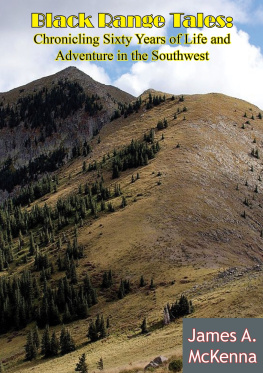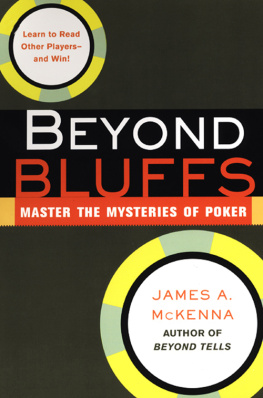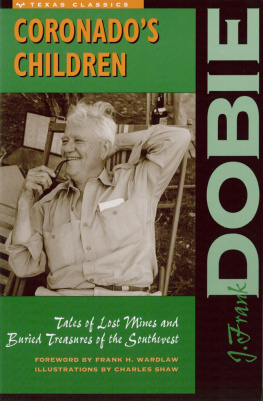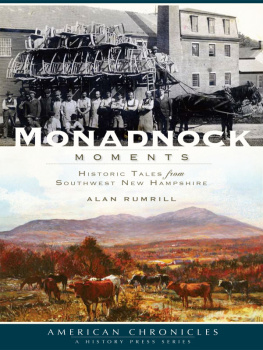

This edition is published by PICKLE PARTNERS PUBLISHINGwww.pp-publishing.com
To join our mailing list for new titles or for issues with our bookspicklepublishing@gmail.com
Or on Facebook
Text originally published in 1936 under the same title.
Pickle Partners Publishing 2016, all rights reserved. No part of this publication may be reproduced, stored in a retrieval system or transmitted by any means, electrical, mechanical or otherwise without the written permission of the copyright holder.
Publishers Note
Although in most cases we have retained the Authors original spelling and grammar to authentically reproduce the work of the Author and the original intent of such material, some additional notes and clarifications have been added for the modern readers benefit.
We have also made every effort to include all maps and illustrations of the original edition the limitations of formatting do not allow of including larger maps, we will upload as many of these maps as possible.
BLACK RANGE TALES:
CHRONICLING SIXTY YEARS OF LIFE AND ADVENTURE IN THE SOUTHWEST
BY
JAMES A. MCKENNA
(Uncle Jimmie)
Introduction by Shane Leslie
TABLE OF CONTENTS
Contents
ABSTRACT
ABOUT THE AUTHOR
JAMES MCKENNA blazed a trail to the Southwest in his youth, and his life for the next sixty years was filled with all the history-making adventure and treasure that his ardent nature craved. It was not always the treasure of gold, although gold was there. But there was life while it lasted, death when it came, a mystery-ridged land and courageous people to explore it.
Starchaser and founding father, he has left us with a wild songof the Southwest he helped to build, and another Southwest that always was and always will be.
DEDICATION
TO
THE SISTERS OF THE HOLY CROSS
HOLY CROSS SANATORIUM
NEW MEXICO
THE OLD-TIME PROSPECTOR
As you come to know him better, you must love him for the kindliness, the simple honesty, the modesty, and the charity that he seems to draw from his mountain environment. There are hundreds of him buried in the great canyons of the West.
STEWART E. WHITE.
INTRODUCTION
As soon as I started reading the manuscript of Uncle Jimmies memories of early life in America, I felt that I was peering into a forgotten world of pioneers and settlers. The old America that reaches us feebly in novels and luridly in films was here set forth in the delightful, natural speech of a living survivor.
The McKennas I have known all my life for they come from my homeland in Ireland, the celebrated Barony of Trough in the County of Monaghan. Here I was brought up amidst the clan and I always followed the fortunes of the McKennas through the world. Dan OConnell took one of them over to London and his descendant became Chancellor of the Exchequer and a great financier, the Right Honourable Reginald McKenna. Others became Generals in South America or Bishops in Ireland. Another reached the Supreme Court in Washington.
Many hundreds of the clan have spread themselves through the world but few have recorded their adventures. Uncle Jimmie McKenna must be the exception and I have been entranced by every word which his friends have taken down from his lips. He is a real link with the past when immigrants were men indeed and made and adorned America. His grandfather was brought by a walking party from Montreal to Pittsburgh. What a link with the past sleeping in the same four poster that Lafayette had used when he revisited America!
The account of Uncle Jimmies hard-working and adventurous life beginning on the Mississippi River reads like a chapter of Mark Twain. Children had little luxury then. Uncle Jimmie never saw a banana or took a glass of beer till he was a young man. He always had the common sense to avoid drinking or smoking. This accounts for his lithe, dignified and dapper figure, which few modern men attain or keep. It is easy to imagine him as an Irish gentleman in the words of the old song:
a fine old Irish gentleman
One of the olden time.
Through his eyes his friends can stretch their historical imaginations back to before the Civil War. He remembered his father voting for Lincoln. He remembered his sister being destroyed in a munition explosion. He remembered being stricken with the yellow fever and at fifteen years of age having to boss a gang of negroes employed in burning the bodies of the dead.
Then followed his life as a pioneer and prospector: warfare against Indians and mining adventures. There can be nobody left alive with such a direct memory of those days or with the ability to spin his memory out of the days of a past which is farther away from this generation than those days were from the Colonial.
The memories of this fine old survivor are among the memories of his whole generation. They are part of the history of the West which he helped to win. I envy the good sisters who support his declining days. I envy all who ever hear his tales told firsthand. I envy the publishers who had the luck to catch the written yams: I envy all the readers who are reading them for the first time.
SHANE LESLIE
PIONEERING FROM 1877 TO 1887
1. I Go West
In the fore part of 1877 I went to work on a steamboat which ran from Pittsburgh, Pennsylvania, to St. Louis, Missouri. In St. Louis I got a chance to go on the Far West , a steamer carrying supplies to the different forts on the Missouri River. I shipped as a weigh clerk as far as Kansas City. There I took note of the crowds getting ready to head for the West, and I made up my mind to go along and try my luck in the mining camps of Colorado or New Mexico. A wagon outfit was about ready to pull out for Trinidad, Colorado, so I bought a pony and agreed to ride herd for my bed and board, the wagon boss furnishing me with a rifle, saddle, and bridle, and other things needed for the trip.
There were over thirty covered wagons in the outfit, and we made about twenty miles a day. At dusk the wagons drew up in a circle and we went into camp. Then I would crawl out of the wagon where I had been sleeping and make ready to ride herd all night. Feed and water were plentiful until we reached Dodge City. Part of the wagon train left us here, but I kept with the balance until we reached Trinidad. There were many contractors in that section looking for men to help build the railroads, and most of the men in the outfit were picked up by them. Myself and three other men who were foot-loose and without families pitched together and hired a bull team. Loading up what we needed in the way of blankets and food, we pulled out for Elizabeth Town, a gold diggings in the main Rockies, a hundred miles west from Trinidad.
It took us about fifteen days to get there, the bullwhacker being in no hurry, for the bulls were poor and the grass was good. I was in no rush to get work, as I had about fifty dollars in greenbacks to go on, though I soon found out the hotels and restaurants discounted paper money, many of them paying only four dollars in silver or gold for a five-dollar bill. Mexicans would not take it at all.
When we got to Elizabeth Town I took up with a man named Allen, who had a piece of ground on Ute Creek not far distant, that panned out fairly well. As he wanted a partner who would do the mucking, or shovelling, I agreed to take an interest in his diggings, promising to pay him twenty-five dollars from the dust we took out. Placer mining was new to me, and I spent several days looking around before I went to work.
Next page







